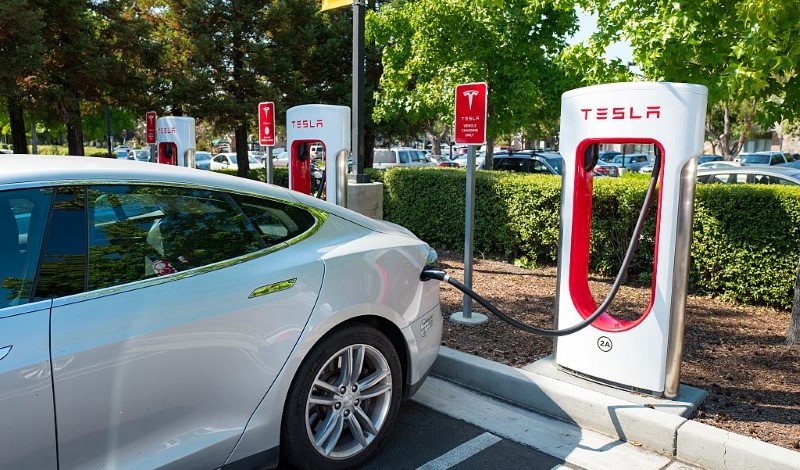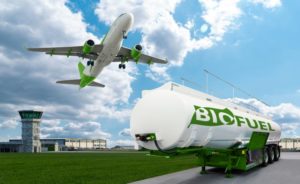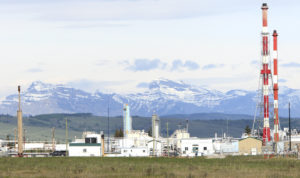
Congress should allow NHTSA to consider electric vehicles and credit trading when setting fuel standards.
Vehicles run more efficiently now than they used to, largely thanks to the National Highway Transportation Safety Administration (NHTSA). This agency sets standards for automakers’ average miles per gallon, known as corporate average fuel economy (CAFE) standards. Over its 40-year history, the CAFE program has saved consumers $5 trillion in fuel costs. Continuing to set smart standards for future model years can be tremendously important.
Not surprisingly, though, optimizing fuel economy is enormously complex. Economists and engineers spend years parsing all the nuances to consider, including vehicle size and safety, health and climate effects, and future gas prices. So it stands to reason that NHTSA should use the best information possible to set CAFE standards. But, in NHTSA’s enabling statute, the U.S. Congress has made sure that NHTSA cannot do so. The statute pulls wool over the agency’s eyes in two key ways.
First, Congress forces NHTSA to set standards while pretending that manufacturers cannot make more electric vehicles (EVs) to comply. Yet, under the Inflation Reduction Act, Bipartisan Infrastructure Law, and related Biden Administration actions, EVs will likely continue to become cheaper and more common. And that matters. These vehicles consume no gas and produce no exhaust. Fully analyzing fuel economy requires considering how EVs factor into manufacturers’ compliance plans. But Congress forces NHTSA to ignore that.
Second, Congress forces NHTSA to set CAFE standards while ignoring a key compliance option: credit trading. Simply put, some auto companies are better at boosting fuel economy than others. These efficient companies can “overcomply,” earning credits for gains beyond the standard. Less efficient companies can then buy these credits from others instead of making investments that they would find more costly. This credit trading regime is important for understanding how companies will meet CAFE standards. But again, Congress tells NHTSA to look away.
Instead, Congress forces NHTSA to craft regulations in a made-up Fantasyland in which no manufacturer makes new EVs or buys credits to comply with CAFE standards. In Fantasyland, NHTSA must ignore cheap ways of complying, in turn yielding weaker standards. Under those constraints, even small tweaks to fuel economy can result in scary sounding but totally illusory vehicle price increases.
Few people, however, understand the Fantasyland constraints. That has sown confusion and misleading claims over NHTSA’s newest proposed CAFE standards. Take the warning from two corporate attorneys that one slice of the standards would cost drivers billions of dollars, or a comment from automakers—picked up by the energy media—warning of $3,000 price increases across the new car fleet. These numbers sound scary, but, among other issues, they are completely fake. They come from Fantasyland modeling, where some of the cheapest ways of complying do not exist. NHTSA may have to operate in Fantasyland, but those who evaluate the standards do not. Public commentaries should instead reflect reality.
That said, NHTSA itself is not completely off the hook.
Even within Fantasyland, NHTSA’s analysis of its proposed standards is skewed in several ways. For instance, the agency assumes that people do not buy a different brand even when prices go up. But if one vehicle make became several thousand dollars more expensive, basic economics and common sense say buyers would switch companies.
Moreover, NHTSA considers several alternative standards, including one that is considerably more stringent than its preferred option. But the agency stops its analysis and rejects that alternative when it finds much higher vehicle prices. That one-sided assessment ignores the fact that gas savings—along with other social benefits, such as reduced carbon pollution—would more than offset those higher prices. My colleagues and I outlined those issues and more in a comment letter we submitted to NHTSA.
These Fantasyland constraints, combined with NHTSA’s illogical approach, leave the CAFE program in a messy, unrealistic morass. And oil and gas companies, alongside Republican-led states, have filed a lawsuit over the prior standards seeking to make it even messier. According to them, NHTSA should not only ignore the possibility of automakers complying with CAFE standards by using EVs. They say that the agency should also ignore the EVs that would exist in the market anyway.
My colleagues explained to the U.S. Court of Appeals for the District of Columbia why that is wrong legally. If the court agrees with these challengers, though, it would leave NHTSA in a Fantasyland Deluxe that is so unrealistic that the CAFE program, and all the gas savings that come with it, could soon become effectively obsolete.
None of this is good policy. NHTSA’s Fantasyland constraints artificially keep standards lax, to the benefit of politically favored gas-powered car companies and fossil fuel interests. Congress has the power to bring NHTSA back into reality. And it should do so, especially if the D.C. Circuit challenge succeeds.
When it comes to optimizing gas savings, the country is better off living in reality.




